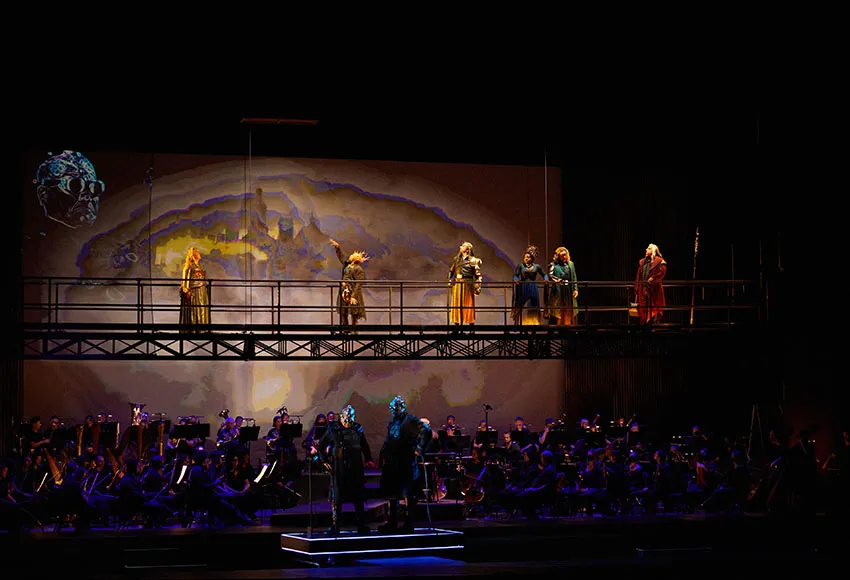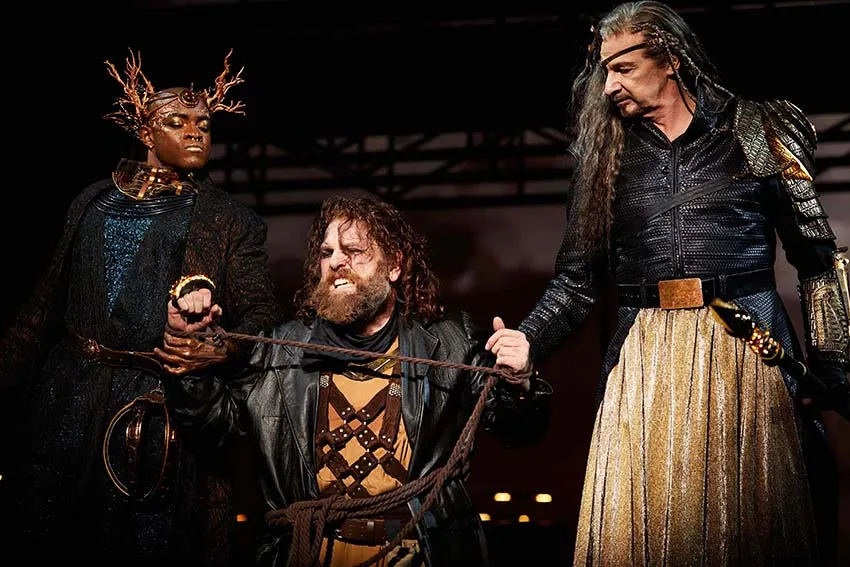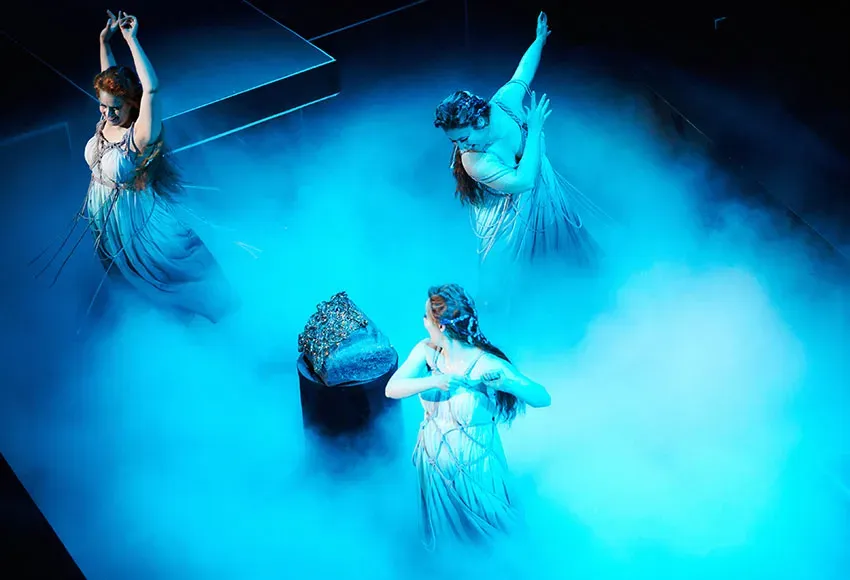DAS RHEINGOLD
by Richard Wagner
Seattle Opera
McCaw Hall, Seattle Center
August 12, 2023
Seattle Opera's founding general director, Glyn Ross, made international news in 1975 by presenting Richard Wagner's four-opera epic, Der Ring des Nibelungen, to Seattle's growing audiences and to the world. It was an audacious act of imagination that catapulted a scrappy little opera company into the destination organization it's become, known worldwide for innovative productions and first-rate singers.
The current production of Das Rheingold – the first opera in the cycle – is an equally audacious, brilliant return to Seattle's Ring tradition, and the best show in town.

This epic requires a huge orchestra – 78 musicians – usually hidden in the orchestra pit like a genie in a bottle. But in this production, the genie escapes to the stage, with conductor Ludovic Morlot as a kind of magician controlling the action with his baton. The audience can now watch as well as hear the music rise up from the instrumentalists themselves as the gods, goddesses, villains, and mermaids struggle over a magical ring that controls the world. (If this plot sounds familiar, Frodo and Harry Potter can thank the Norse myths for their adventures.)
In a surprising coup de théâtre, the orchestra pit becomes the Rhine River, using choreography and theatrical fog to create the illusion of water while the three Rhine Daughters dive and splash around a hoard of gold that sets the epic in motion. This is just the first of many delights and surprises in the current production, directed by Brian Staufenbiel and based on his 2016 design for the Minnesota Opera. The three-tiered structure of the Rhine Daughters' river, the orchestra's middle world, and the gods' and goddesses' airy bridge hovering above the stage give the audience a chance to watch the mechanics of Wagner's universe – a great wheel of action that moves this epic from its lilting start to its inspiring conclusion.
The most remarkable aspect of Staufenbiel's concept is the introduction of the singularity: the merging of the electronic, mechanical world with the human and epic worlds. The giants of the underworld, Fasolt and Fafner, become cyborgs whose communication with the gods is conveyed through electronic projections. The audience sees them confer with one another, then turn their faces to project a hideous electronic image onto a screen visible to the gods. The gods themselves have merged with the machines that move the universe – a weird suggestion of where humans in the real world might be headed. The balance between natural and sci-fi worlds in this production is elegant and unsettling.

Voices equal to the dazzling technical effects
On opening night, the singers' performances were superb. Bass-baritone Greer Grimsley has been Seattle Opera's one and only Wotan since 2005, and the depth of experience imbued his performance. How wonderful it was to have his commanding presence back on Seattle Opera's stage!
Baritone Michael Mayes was simply terrific as a menacing but vulnerable Alberich, whose rascally humor in the opening scenes was a triumph. Tenor Frederick Ballentine sang the role of the fire god Loge while scampering over the stage like a tongue of fire, his hands flickering even when he stood still. In the smaller role of the god Froh, Viktor Antipenko showed off an equally gorgeous tenor voice. Soprano Katie Van Kooten gave a lovely and powerful performance as the goddess Freia.
Sopranos Jacqueline Piccolino and Shelly Traverse and mezzo-soprano Sarah Larsen as the three Rhine Daughters sang beautifully and danced impressively as well, diving and weaving around the sparkling golden hoard that becomes the contested Ring of the Nibelung in the next three operas.
The Nibelungs, miner-slaves who haul up the gold from the underworld, were played with menacing charm by a gang of cleverly disguised children.
As the goddess Fricka, mezzo-soprano Melody Wilson seemed somewhat uninvolved but sang adequately. Unfortunately, mezzo-soprano Denyce Graves as the earth goddess Erda sounded a bit ragged; she usually sings much better than this, and the crucial scene in which Erda rises from the depths to admonish Wotan was marred by her disappointing performance.
Seattle Opera dramaturg Jonathan Dean's English captions were even better than his usual translations: clever and apt, with lots of alliteration and much humor. These essential projections of English – easily read on an upper scrim – are a performance all their own.
Stage manager Keri Muir deserves special praise for the perfectly coordinated technical effects. The visual effects themselves, by projection designer David Murakami and lighting designer Mextly Couzin, were absolutely thrilling.
Is another Ring cycle in the works?
Here's the big question for Seattle Opera fans and opera lovers everywhere: When will Wagner's four-opera extravaganza return to our fair city? General Director Christina Scheppelmann recently said, "When someone gives us a million dollars." The same question was put to Jonathan Dean after opening night of Das Rheingold, and his answer was more encouraging: "Stay tuned."
Those of us who love the Ring cycle are staying tuned, and those of you who attend the current Rheingold will join us, because it's a marvelous combination of music, theater, visual beauty, and thoughtful consideration of the future of humanity. What a bargain – don't miss it!
Performances run through August 20. For more information and to purchase tickets, visit https://seattleopera.org


